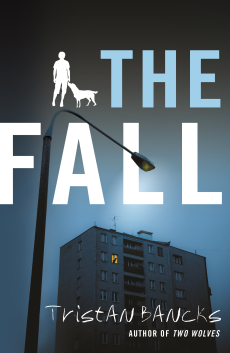
In straining every nerve against heretics, More believed he was serving God and Henry equally. He failed to see that, at least where the king was concerned, he was standing on shifting sands. Erasmus, too, was unsympathetic. From his sanctuary in Basel, he fell into a state of denial over the reports he received of Thomas’s behaviour, refusing to believe that the author of Utopia could have taken this turn. Twice Erasmus claimed, inaccurately, that no heretic was put to death while More was lord chancellor. Thomas later put him straight. Writing his own epitaph a year or so after his resignation as lord chancellor, he said he had been ‘grievous to thieves, murderers and heretics’ and wanted all his friends to know as much. ‘I wrote that with deep feeling,’ he told Erasmus. ‘I find that breed of men absolutely loathsome, so much so, that unless they regain their senses, I want to be as hateful to them as anyone can possibly be.’
* * * * * * * * *
In pursuit of his trophies, the bones or relics of the prehistoric, he had a grave enthusiasm which made you think of an owl pursuing mice. At the same time he prided himself, incongruously one might suppose, upon a more than ordinary knowledge of cocktails. He mixed, for his own benefit and that of his friends, extremely curious alcoholic solutions, which he drank or handed round with a sombre and imposing gravity. After swallowing a few of his own decoctions, he became paler, moister, more vague, until he finally subsided into a state of mental mildew, a dim shimmering on the verge of total obliteration. I suppose the cocktail aspect of Mr Tuffle was really due to a belated feeling of counterpoise, a rather pathetic desire to appear manly. A similar impulse, no doubt, induces curates to brag about the drinking of beer.
* * * * * * * * *
Later, Vera woke to splashing water. In the bathroom, she found her daughter on her knees before the toilet, holding her hair in a loose fist behind her head.
“You stupid child,” Vera said, dropping to her knee beside her. Lydia’s head flopped over the toilet seat. “You stupid child, what have you done?”
“I don’t know,” Lydia mumbled, letting the fistful of hair go slack.
Vera had an urge to shout, but she laid her daughter on the floor and made a pillow from the bath towel. A mother comforts. A mother cleans. A mother gives when any reasonable person would deny. Life might affix any number of labels to Vera – Russian, pensioner, widow, daughter. But when she looked to her washed-out reflection in the bathroom mirror, she saw only Lydia’s mother.
* * * * * * * * *
That was the summer I drifted through the city. Did I already say that? Everything I saw had a subtle but unmistakeable doubleness. Each pace was reminiscent of some previous pace, not just because I knew the streets well and had walked them before, though this was true, but because I’d already taken that particular pace. My present had somehow gone before me and was already irrevocably in my past. All the sounds I could hear, slightly amplified and somehow picked out or defined, were no more than echoes, their presence freakish, their availability to me as exotic as a radio signal from a long-ago war.
Each moment, as I lived it, had already been used up. I could not connect things together. They happened to me, they had already happened to me. The helix that spans from birth to death, the unbroken thread of habit and progress that makes a person a person, a self whole and entire, had become as discontinuous and insubstantial as a chain of smoke rings.
* * * * * * * * *
Various holy men and spiritualists had established themselves in the palaces of Russia’s great and good long before Rasputin came on to the scene. Their success cleared the way for him. He was presented at parties and soirées as a man of God, a sinner and repentant, who had been graced with extraordinary powers of clairvoyance and healing. His disgusting physical appearance merely added piquancy to his moral charms. Dressed in a peasant blouse and baggy trousers, his greasy black hair hung down to his shoulders, his beard was encrusted with old bits of food, and his hands and body were never washed. He carried a strong body odour, which many people compared to that of a goat. But it was his eyes that caught his audience’s attention. Their penetrating brilliance and hypnotic power made a lasting impression. Some people even claimed that Rasputin was able to make his pupils expand and contract at will.
* * * * * * * * *(NB When quoting from audiobooks, I have to make assumptions about the spelling of names, punctuation of sentences, etc., so there may be some differences from the original text.)
* * * * * * * * * So…are you tempted? Please feel free to share this:- More





